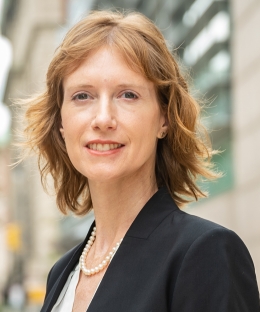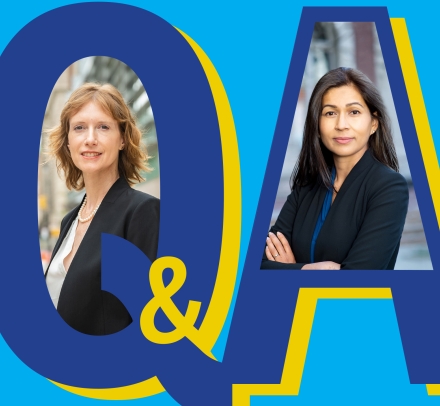
Kate Andrias
- Patricia D. and R. Paul Yetter Professor of Law
J.D., Yale Law School
B.A., Yale College
Constitutional Law
Labor and Employment Law
Law and Democracy
Law and Social Movements

J.D., Yale Law School
B.A., Yale College
Constitutional Law
Labor and Employment Law
Law and Democracy
Law and Social Movements
Kate Andrias is the Patricia D. and R. Paul Yetter Professor of Law at Columbia Law School, where she directs the Columbia Law School Center for Constitutional Governance and the Columbia Labor Lab. An expert of constitutional law and labor law, Andrias has written extensively about the failure of U.S. labor law to protect workers’ rights; the relationship between constitutional governance, economic inequality, and democracy; and law and social movements.
Before becoming a law professor, Andrias served as Associate Counsel to the President of the United States and chief of staff in the White House Counsel’s Office and as a law clerk to Justice Ruth Bader Ginsburg ’59 on the U.S. Supreme Court and Judge Stephen Reinhardt of the U.S. Court of Appeals for the 9th Circuit. She also worked as a union organizer with the Service Employees International Union and practiced political law at Perkins Coie.
Andrias previously taught at Michigan Law School, where she was the recipient of its L. Hart Wright Award for Excellence in Teaching. She joined the faculty of Columbia Law School in 2021. She has been a visiting professor at L’Institut d’Études Politiques (Sciences Po) in Paris and at the University of Chicago. Andrias served as a commissioner and the rapporteur for the Presidential Commission on the Supreme Court, is a member of the American Law Institute, and sits on the Board of Academic Advisors of the American Constitution Society. She frequently provides advice on policy initiatives to legislators and workers’ rights organizations and works on constitutional and labor-related litigation.
Selected Publications (available on SSRN):

Illegal child labor and exploitation in the United States are leading to a crisis in protecting children on the job, say two of Columbia Law’s faculty experts on labor law and immigrants’ rights.